EVENTS
Xi-Biden Summit Yields No Movement on Human Rights
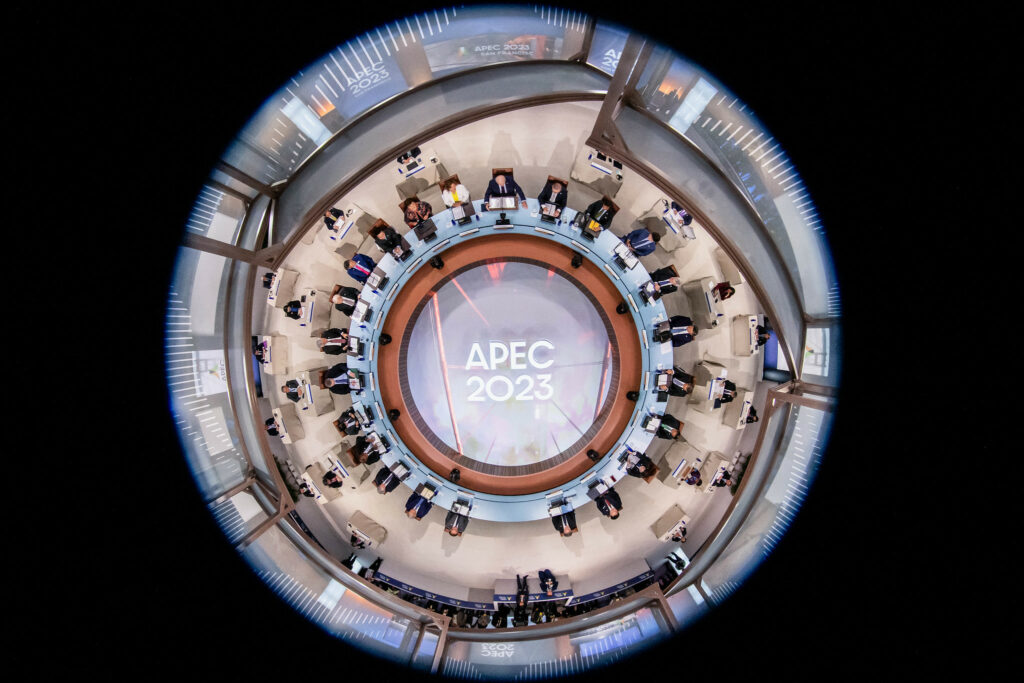
The Asia Pacific Economic Conference (APEC) is a grouping of 21 countries that border the Pacific Ocean, accounting for 40 percent of the world’s population and more than half of global trade. The 2023 APEC Summit took place in San Francisco from November 11-17, 2023, the first time an important international event has taken place in the city since the signing of the UN Charter in 1948. That founding document was finalized and signed at the Fairmont Hotel, which is where President Joe Biden lodged during the APEC 2023.
The event that drew worldwide attention to the gathering was the meeting between Chinese President Xi Jinping’s and US President Joe Biden on November 15 at a country estate south of the county line. It was the first time in a year fraught with tension that the two men spoke face to face. Shrouded in secrecy, the media nevertheless found out the when’s and the where’s. Protesters, both pro-Chinese government and anti-Chinese government, lined the road in a few locations to let their opinions be known.
No Joint Statement
As at APEC 2022 held in Indonesia, there was no joint statement at the conclusion of the two men’s four-hour meeting – which included a luncheon and a short walk in the rain through estate gardens. Also, as in Bali, each side issued its own statement.
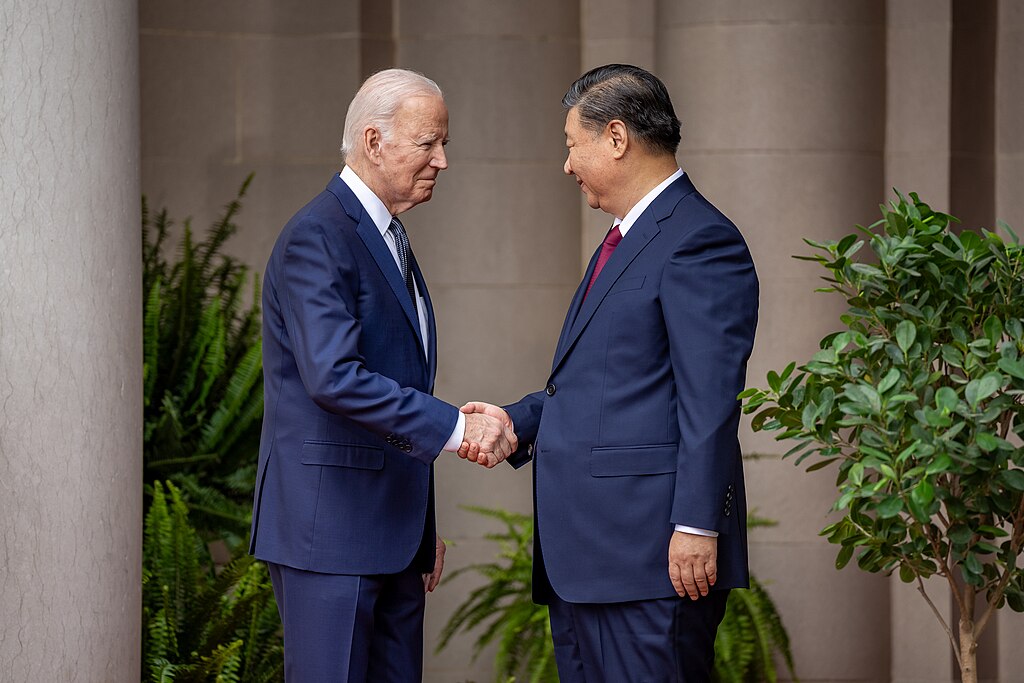
The United States claims that understandings were reached in several areas, listed below. These claims have not been contradicted by the Chinese government, and several have been confirmed if not using identical language. They include:
- Resumption of military communications, suspended since the “spy balloon incident” in February 2023;
- Steps by China to reduce the flow of narcotics including precursors for fentanyl, to the United States;
- An agreement to reduce carbon emissions and increase use of renewables, reached prior to the summit;
- Also prior to the summit, an understanding to control the use of artificial intelligence in military operations.
A possible major commercial transaction involving Boeing jets and a possible gift of pandas to the United States were rumored to be in the cards.
Neither government spoke of progress on human rights. A resumption of the bilateral human rights dialogue, suspended since 2016, was not announced. The United States’ claims that Hong Kong, Xinjiang, and Tibet were raised have been met with stony silence. In July 2022, President Biden claimed that he raised genocide and forced labor concerns in Xinjiang in a phone call with President Xi. China’s foreign ministry angrily denied that President Biden had done so, labeling the White House claim “disinformation.”
Claims Undermined
The claim that the two countries reached an understanding on fentanyl was called into question when an article in Politico reported that the understanding was reached in return for a US commitment to remove a police body allegedly involved in the persecution of Muslims in Xinjiang. Neither government responded to requests for confirmation. The claim that the two countries agreed to resume military-to-military communication was undermined by the fact that China’s does not currently have a defense minister, so there is no one for Secretary Austin to talk with. Ten days after the summit there was a serious confrontation between warships of the two countries in the Taiwan Strait. The newly restored channel for communications between the two countries was apparently not activated.
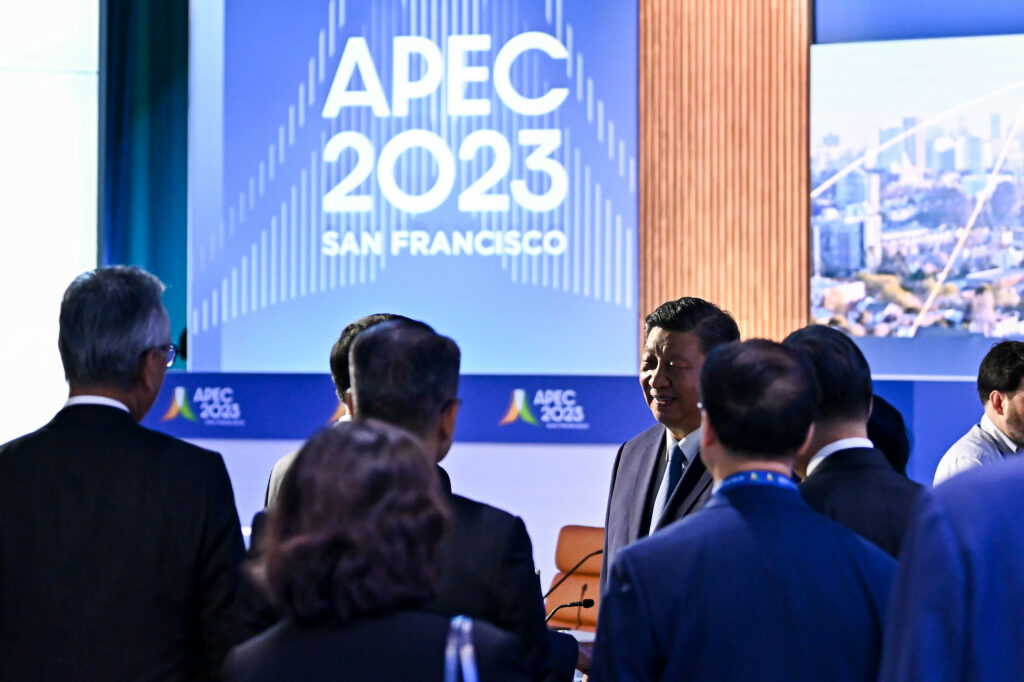
The failure to discuss human rights in the meeting does not mean that human rights was not raised outside the meeting. There were loud protests by Tibetans, Falun Gong practitioners, Uyghurs, and Hong Kong people outside the hotel where the Chinese delegation stayed, outside the Chinese consulate, and outside the venue for the banquet where Mr. Xi was feted by two pro-China organizations. (The banquet turned out to be controversial as Xi received a standing ovation. That prompted condemnation from multiple parties and calls for a congressional investigation.) Some of the protests are said to have turned violent, though San Francisco Police told Voice of America that no one had been arrested and that only one protester had filed a police report.
The failure to discuss human rights was not for want of trying. The State Department managed to hand over a list of prisoners to Chinese Foreign Minister Wang Yi the week before the summit. Lists were also publicized by congressional bodies like the Select Committee on the Chinese Communist Party and the Congressional Executive Commission on China, all to no avail. Dui Hua managed to give the Chinese government a short list in the form of an article that was eventually published on its website. In addition to writing about expectations leading up to the Summit in the Human Rights Journal, Dui Hua also dissected the aftermath of APEC in an episode for the Encounters with China podcast.
Cordial, Not Warm
There were no known prisoner releases or other acts of clemency prior to, during, or in the aftermath of the Biden-Xi meeting.

The tone of the meeting between Xi and Biden was cordial, if not warm. A reporter asked President Xi if he trusted President Biden. Xi did not respond. Xi called Biden an old friend. Biden declined to return the compliment. At a brief press conference held shortly after the meeting, Biden called Xi a dictator, repeating an assessment first deployed at a fundraiser a few months earlier, evincing a look of dismay by Secretary of State Antony Blinken.
The two leaders committed each other to staying in touch, but no dates were suggested for a future get-together.
Listen to Dui Hua’s podcast episode “APEC 2023: Xi & Biden Meet”
PUBLICATIONS HIGHLIGHTS
The Liberation of Ngawang Choephel (December 4, 2023)
From John Kamm Remembers, a series written by Dui Hua’s founder recounting his advocacy for prisoners in China.
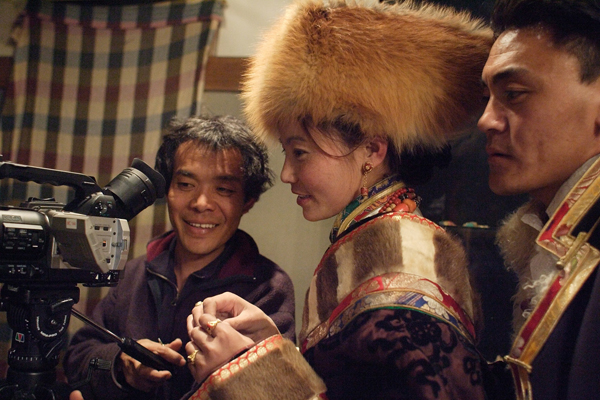
In September 1995, a 29-year-old Tibetan ethnomusicologist named Ngawang Choephel was detained by Chinese authorities. Choephel was accused of spying for the Dalai Lama, but it was his documentary work that ran afoul of authorities. In 1997, John Kamm took up Choephel’s case, sending him on a journey through the Chinese legal system, the US senate, multiple embassies, and human rights NGOs that would help form the template for his later human rights work.
Turning over a New Leaf: Juvenile Offenders Benefit from Reform (October 23, 2023)
From the Human Rights Journal, a blog offering original analysis and translations related to human rights and rule of law developments in China.
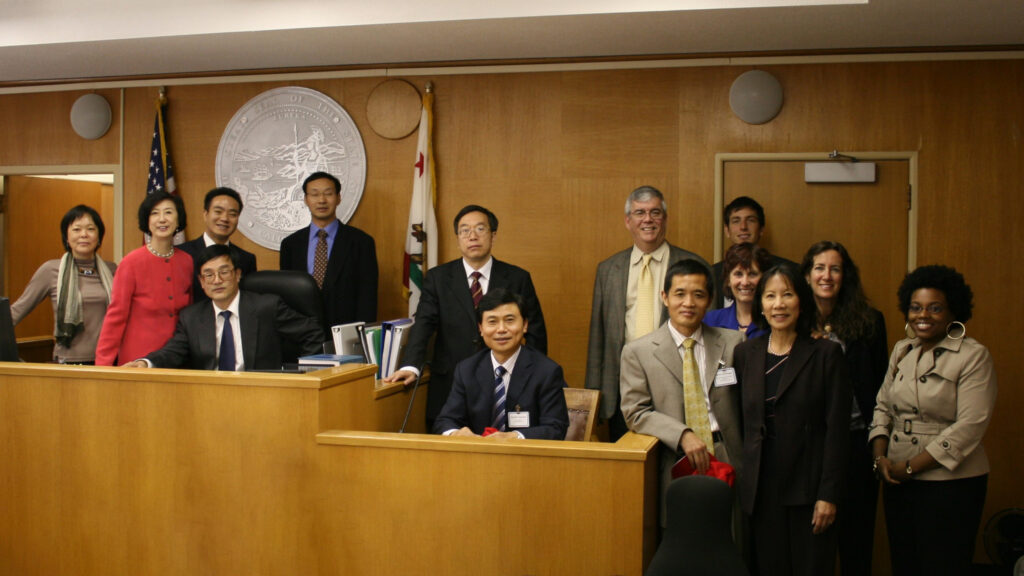
This year marks the 15th anniversary of Dui Hua’s first expert exchange with the Supreme People’s Court (SPC) on juvenile justice. Beginning in 2008, these exchanges have addressed issues related to juvenile justice, women in prison, girls in conflict with the law, and child welfare. Statistics released by the SPC and Supreme People’s Procuratorate in 2022 reveal a continuous drop in juvenile convictions, falling by more than 50 percent since 2013. The Human Rights Journal looks at these statistics and what they say about the progress of juvenile justice reform in China.
ENCOUNTERS WITH CHINA PODCAST
The Encounters with China podcast was launched this August to celebrate Dui Hua entering its 25th year. This podcast series looks at aspects of Dui Hua’s unique form of advocacy as well as issues affecting US-China relations. Six episodes have been released: Lists & Dialogues: the Prisoner Information Project (ep 1), No Longer Favored: China’s Trade Status in Jeopardy (ep 2), Forging New Parths for US China Dialogue: Juvenile Justice (ep 3), Kamm’s List: Two Good Priests (ep 4), Sealing Juvenile Records: The Importance of a Clean Slate (ep 5), and a special podcast focused on APEC (ep 6).
#5 Sealing Juvenile Records: The Importance of a Clean Slate (November 13, 2023)
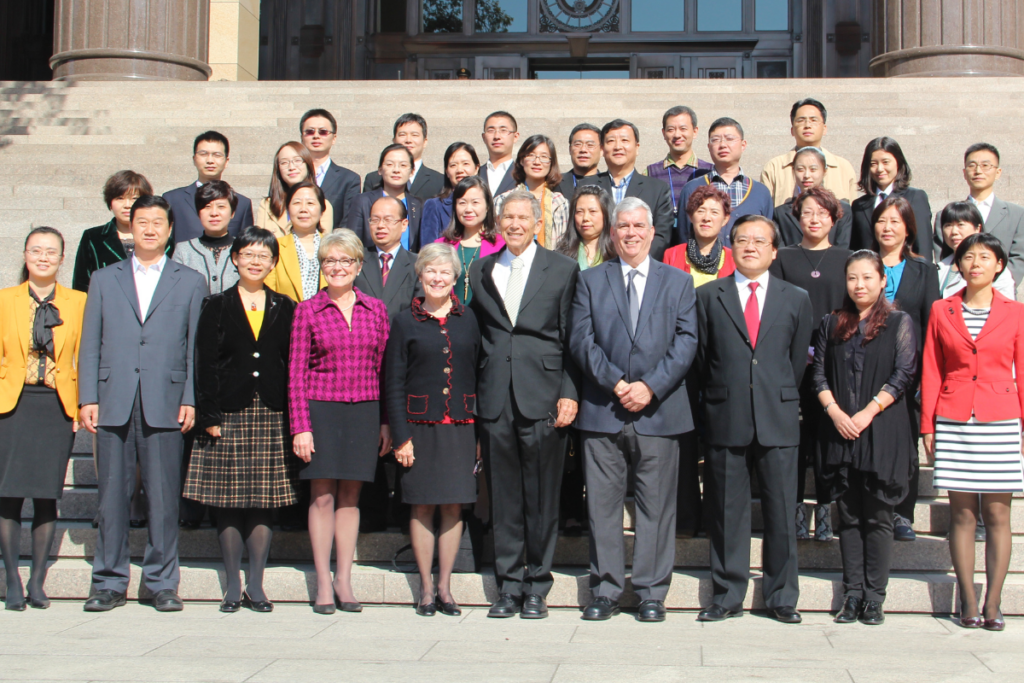
In this episode, host Rebekah Enoch talks with Dui Hua founder John Kamm and retired Judge Leonard Edwards about the expert exchanges Dui Hua has facilitated between juvenile justice practitioners from the United States and China’s Supreme People’s Court, both in China and in the United States.
PRISONER UPDATES
Dui Hua’s Prisoner Updates provide the latest information staff researchers have uncovered through online and library research and through direct dialogue with the Chinese government.
Appeals from legal activist Xu Zhiyong (许志永) and lawyer Ding Jiaxi (丁家喜) rejected by the Shandong High People’s Court on November 24; elderly women lawyer Li Yuhan (李昱函) sentenced to 6.5 years in Liaoning, after six years since detained.
DUI HUA IN THE NEWS
Over the past two months, Dui Hua’s work has attracted attention in the media as Executive Director John Kamm continues to raise the issue of Americans detained in China. This season, this advocacy has appeared in Politico and in the Wall Street Journal’s article “China Resists Efforts to Free ‘Wrongfully Detained’ Americans.”
For more information, please visit our Dui Hua in News page.
